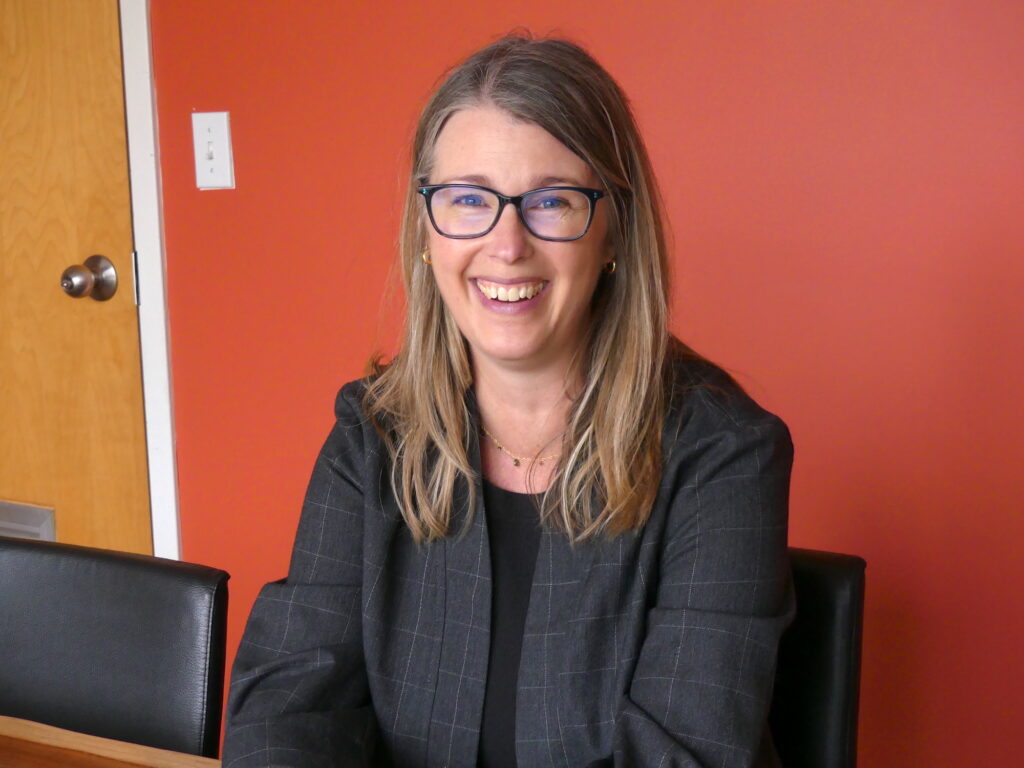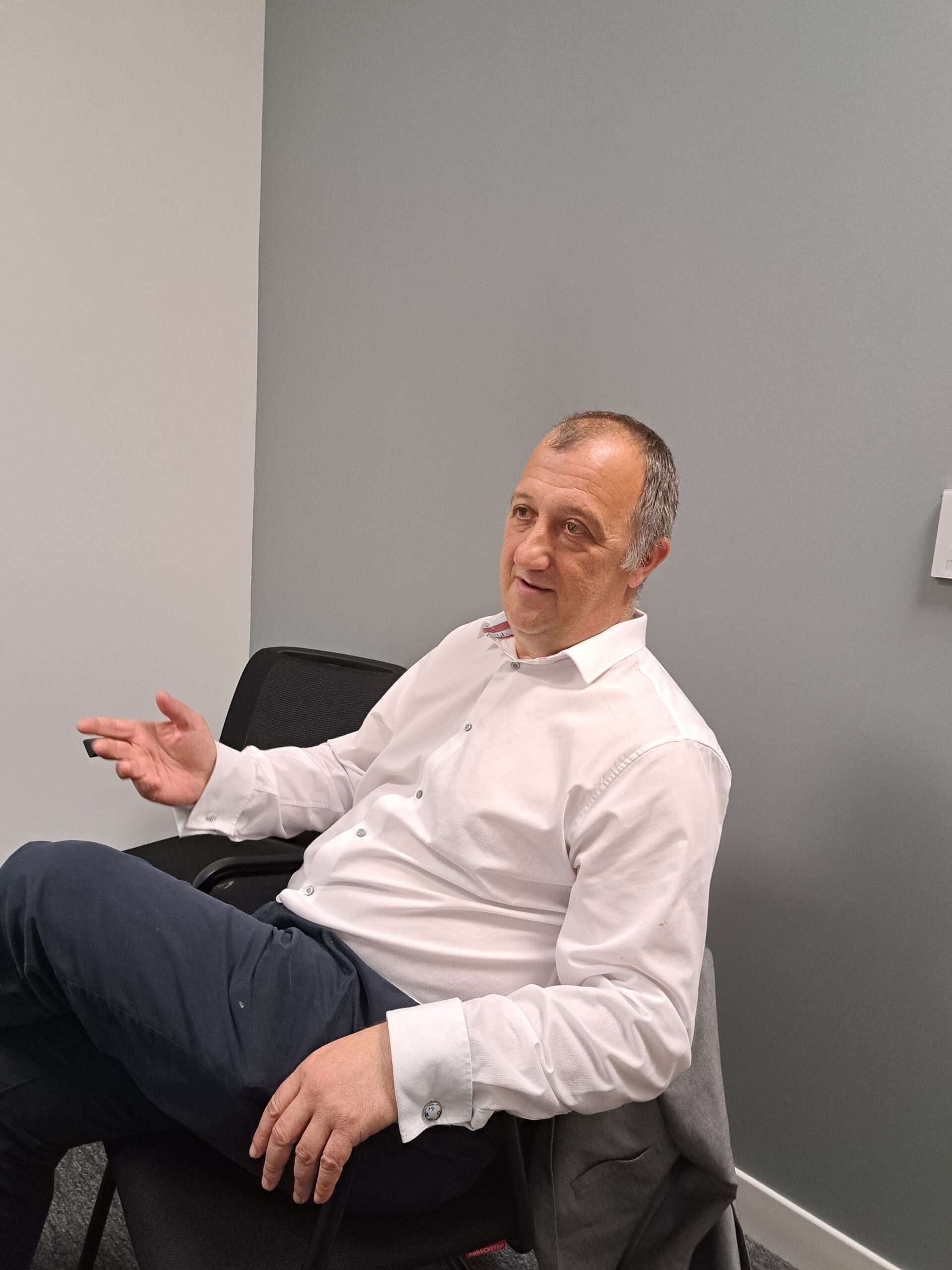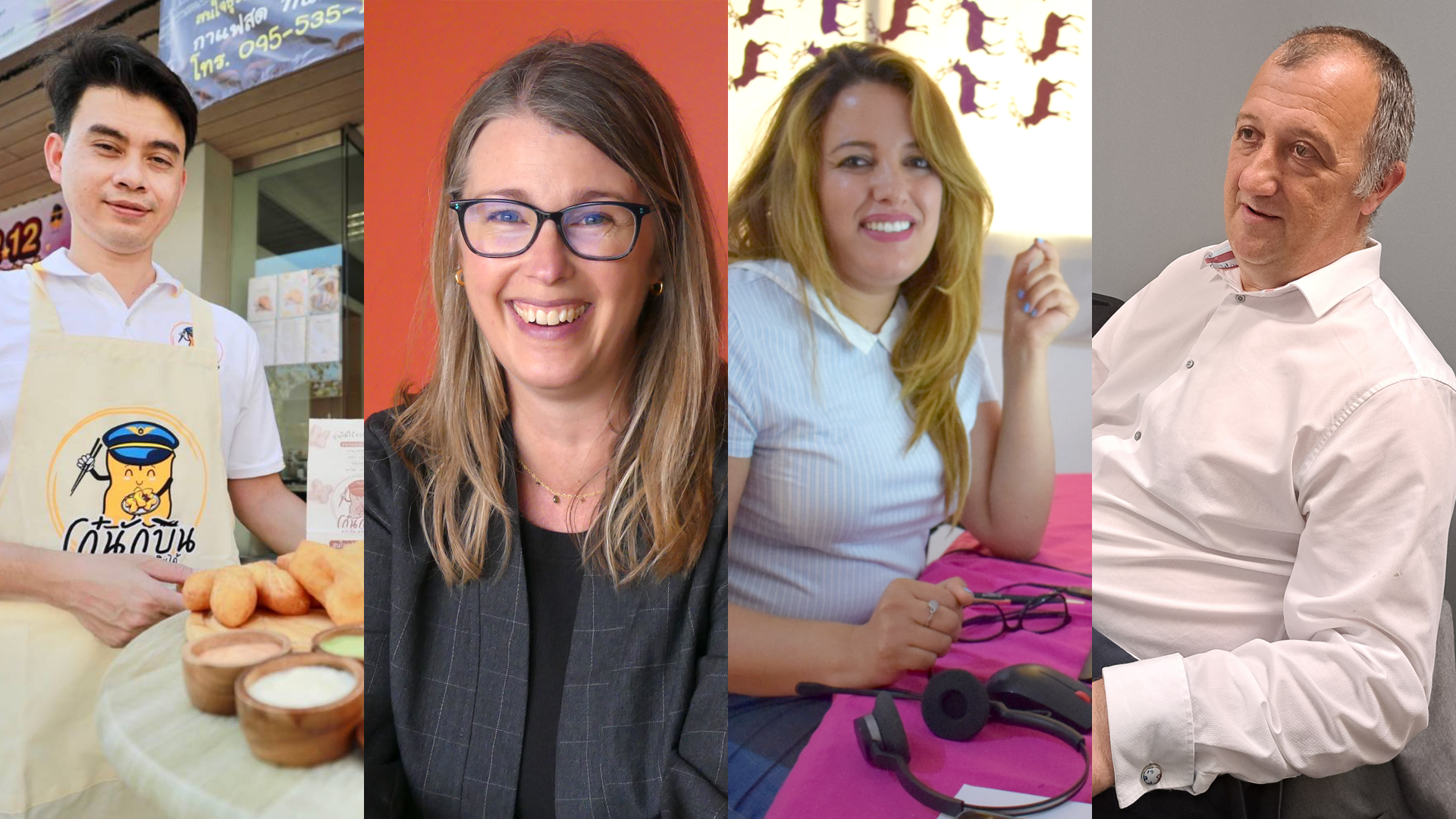In 2022, at the height of the “great resignation” or “great reshuffle,” a record 4.5 million U.S. workers — about 3% of the workforce — quit their jobs each month.
In India, as many as 23% of employees switched to new jobs in 2022, compared to 10% in 2019. The figure was similar in China, with 28% of surveyed employees having resigned that year.
Similarly, in the Netherlands, 19.5% of the employed labor force started a new job in 2022. And the national “quit” rate in Australia was the highest it had been in a decade, at 9.5%, according to the Australian Bureau of Statistics.
And it seems this pandemic-era trend is continuing: New research from Microsoft and LinkedIn predicts that even more people plan to leave their jobs in 2024. Nearly half (46%) of professionals surveyed around the world said they’re considering quitting in the next year — even more than the 40% who said the same thing in 2021, ahead of the “great resignation.”
Just as in 2022 — when 53% of those quitting chose to go into a new industry — a significant portion of workers leaving roles today are actually making big pivots into entirely new careers.
But what’s leading these changes? A 2023 report from the Chartered Institute of Personnel and Development (CIPD) found a lack of flexible working arrangements as a key reason employees left a job in the previous year. In the U.K., around 4 million people changed careers in 2022-23 due to a lack of flexibility at work, while an estimated 2 million left a job for the same reason.
But disengagement has also been another key factor. Gallup’s 2024 State of the Global Workplace report identified a global employee engagement rate of just 23%. And disengagement is very costly: teams with low engagement typically experience turnover rates that are up to 43% above highly engaged teams — and replacing these workers can cost up to two times the employee’s annual salary.
One of the main drivers of the “great reshuffle” was high levels of burnout. This is a problem globally, with 48% of employees reporting burnout at work. Covid-19 has radically changed what people want out of their work — whether it’s more work-life flexibility, better compensation, improved wellbeing or greater purpose.
Despite the risks, these reasons continue to inspire workers to take big leaps. The ReThink Quarterly found career changers around the world to learn more about the impact big pivots have had on their lives.

Thailand
From pilot to deep-fried dough entrepreneur
By Jitsiree Thongnoi
During the pandemic, when airplanes were grounded and global travel came to a halt, Thai pilot Natthorn Laehkwan, 42, found himself looking for a new source of income. He set up a new business selling Pa Thong Ko, a type of deep-fried dough that is one of Thailand’s most popular street food items.
Located on a Bangkok roadside, Laehkwan named his food stall “Goh Nuk Bin.” Goh is short for Pa Thong Ko and Nuk Bin means pilot in Thai.
Some customers were perplexed. “Are you a pilot?” they asked. When he answered in the affirmative, they said, “You don’t look like one. Why are you doing this?”
In Thailand, many people consider aviation jobs far more glamorous than the day-to-day hustle of a street vendor.
But Covid-19 was a crisis unlike any other. By the time he was grounded for the ninth month Laehkwan’s savings were running out.
“Everyone thought that being a pilot was the most stable job in the world — and it was well-paid,” Laehkwan says. “But during Covid we had a meeting at the airline headquarters to discuss the situation. At the time, I was certain I would lose my job. Even my supervisor was crying.”
Laehkwan’s love for Pa Thong Ko started when he began cooking them for his mother.
“I didn’t think of starting this business before Covid because I was satisfied with what I did,” Laehkwan says. “I started the business because I thought I was going to lose my job.”
Customers responded to the new venture. They loved Laehkwan’s hot, comforting Pa Thong Ko and his original flavors of dipping sauce: Pandan, Thai tea, purple yam and condensed milk — all Laehkwan’s own recipes.
Two months after Laehkwan started selling Pa Thong Ko at his stall, the airline called him back to work. But those few months were all the pilot needed to put into place a logistics plan and franchise model. His business has grown ever since.
“I never really thought my Pa Thong Ko stall could turn into a fully fledged business, but people liked it and asked to be a franchisee, so I saw the way for it to grow,” Laehkwan says.
Today there are more than 60 Goh Nuk Bin franchise branches around Thailand. Laehkwan runs about four of his own Goh Nuk Bin shops, with two more scheduled to open in the coming months. He is also planning to add more items to the menu.
You have to let go of your ego and fear.
Alongside this success, Laehkwan still flies around the world as a pilot, spending only a few days each month in his hometown of Bangkok. He earns 1 million Thai baht (THB, $27,315) per month from Pa Thong Ko and more than THB 200,000 ($5,463) per month as a pilot. But whether it’s flying or frying dough, he is equally passionate about both jobs and considers himself lucky.
“My favorite part of being a pilot is that I get to travel all over the world, seeing different cultures,” Laehkwan says. “My favorite part of having my own business is creating jobs and helping others in society.”
Laehkwan holds a degree in medical sciences and worked in that field for two years before beginning in aviation as an air steward. After four years, at the age of 30, he obtained his pilot certificate and has served in the role ever since.
His relentless pursuit of new skills may have come to define his professional growth, but to him, resilience means nothing without a fair amount of humility.
“You have to let go of your ego and fear,” Laehkwan says. “You have to learn new things. Don’t ever stay comfortably where you are. Don’t ever stop improving yourself. Remember, the only certainty is uncertainty.”

Canada
From elementary school teacher to sales enablement specialist
By Tobin Ng
Gillian White is no stranger to big career moves.
“I have had seven jobs in the last seven years,” says the sales specialist with a laugh. White lives in the quaint town of Almonte, Ontario, working remotely to support the sales team of a software company. But before that, she spent years as an elementary school teacher.
She earned concurrent bachelor’s degrees in English and education, and, after graduating in 1999, decided to teach abroad. She spent three years in Berlin and two in Quito, the capital of Ecuador.
When she returned to Canada in 2004, she was shocked to find there were very few teaching jobs available. “That forced my hand a little bit,” White says. Teaching had also become exhausting, and she was ready to try something new.
“When I moved back home, I had in my head this phrase ‘instructional designer,’” says White. “I didn’t really know what it meant, but I had heard it and I thought, ‘That sounds really interesting.’”
White’s parents gifted her some sessions with a career counselor, who told her that she’d thrive in instructional design, a field that focuses on creating learning materials. “It was validating to hear that,” she says. “I think I might have floundered without that validation.”
She set out to get a job in the field, networking with tech executives and trying to get the lay of the land. Eventually, through a networking connection, she landed a role at a growing company. The salary was below the poverty line, but White was able to keep herself afloat by living with her parents. “I knew that if I could simply get the title on my resume, it would open up other doors,” she says.
After just over a year, White landed a new job that paid three times more. She then moved through several instructional design roles, many of which focused on e-learning, which was just beginning to take off. But after a decade in the learning and development (L&D) space, which involves helping employees build skills to boost organizational performance, White became worried about job security. She knew L&D roles were often the first to be cut when budgets were tight.
I’m always learning something new.
In 2019, White took another leap — this time into the emerging world of sales enablement. The field sits at the intersection of L&D and sales, focusing on equipping sales teams with information and training to improve their efficiency. White was intrigued.
After moving through several sales enablement jobs, White now works for a New York-based company that provides software for production crews. She collaborates with the marketing and revenue operations departments to ensure the sales team knows how to sell the product to customers.
In her current role, White designs training for one team. Working in L&D, she created materials for external customers or several departments within an organization. Now, “I’m able to have more impactful conversations about the business because I know the team so well,” she says.
According to White, the salary range for sales enablement specialists is CAD 80,000 to 160,000 ($58,400 to $116,800). On the lower and middle tiers, the numbers are comparable with teachers and L&D professionals — but teachers likely can’t reach the upper end unless they go into administration, she says.
White would consider shifting roles yet again if it involved building something new and executing a vision. “I love figuring out, ‘What are they trying to do? What’s needed? How do we break it down?’” she says. She could also see herself working in career coaching. Eventually, she hopes to build out her own consultancy.
But for now, White says she loves how her educational and L&D skills are transferable. “All I have to do to be reinspired is move to another organization that’s in a different industry,” she says. “I’m always learning something new.”

Tunisia
From editor-in-chief to customer support consultant
By Imen Bliwa
For telecommunications support specialist Assia Touiti, 37, education has always been important.
“I always believed that if you want to be somebody — in Tunisia or in the world — you have to work on your skills and keep studying,” says Touiti, who earned a journalism degree in 2010 from the Institute of Press and Information Sciences and then a master’s degree in political science.
“But that is not really the case in our current economic situation in Tunisia.”
Instead, highly educated job seekers are often overlooked, Touiti says. “For economic reasons, the more qualified you are, the fewer chances you would get to be recruited for jobs. Employees would not want a Master’s degree holder because they might ask for a higher salary.”
After graduating, Touiti worked for six years as a journalist — as a correspondent, reporter and opinion writer — before she got the opportunity to work as an editor-in-chief for an economics magazine. After a year and a half in the role, the company filed for bankruptcy, and Touiti lost her job.
“Like anyone else in my position, at that time I was thinking of doing any available job just to pay the bills,” Touiti says.
Using her skills in communication and language, Touiti decided to move into the telecommunication sector. She now works as a customer support consultant for an international company.
While Touiti earned 800 Tunisian dinars (TND, $257) per month in her former position, her new role provides a higher monthly salary of TND 1,500 ($482). Considering inflation and high living expenses, today, the editor-in-chief salary would not cover daily living expenses, Touiti says.
Making a living amidst the ongoing economic crisis is indeed a challenge in Tunisia. According to the World Bank, Tunisia’s economic recovery slowed in the first half of 2023 due to drought, international financing challenges and increases in domestic debt. Everyday Tunisians have had to simultaneously adapt to increases in the cost of living and decreases in salaries.
Touiti is grateful for her current role, though the interview process was not easy. “I had to pass four tests in [French] language and communication skills,” she says. “But when I passed, I felt valuable and that my long years of studies had not been in vain after all.”
I felt valuable and that my long years of studies were not in vain after all.
Working as a customer support consultant was also initially more challenging than she expected. “It was hard at the beginning, dealing with customers on the phone, and providing them with the support they need,” Touiti says. “The role also requires constant training in order to cope with the continuous development of artificial intelligence technology.”
For Touiti, the best part of the telecommunication sector is respect for workers and investment in their skills. “The fact that my bosses respect me and appreciate my potential is what has kept me working as a consultant for almost five years,” she says. “On the other hand, no one can deny the position is a stressful one, mostly dealing with unsatisfied customers who are seeking a solution to their issues.”
Despite the career pivot, Touiti did not abandon the journalism sector entirely. She spends her free time attending journalistic events and journalism-related training. “I’m driven by my passion to what I dedicated my studies to,” she says. “I am hoping and planning to go back to being a full-time journalist one day.”

United Kingdom
From infantry corporal to strategic account director
By Kevin Gopal
It took Christopher King, 51, three weeks and a cue from his wife to go from guarding the Green Line in Cyprus to a job on civvy street — also known as civilian life — to doing a very different type of security for a payroll company.
In 2017, King was coming to the end of a long career in the British Army and was finishing his time in the infantry in Cyprus.
He had joined the Royal Engineers in 1995 almost straight out of school, and had transferred soon after to the infantry. His postings took him Kenya, the Middle East, Estonia and elsewhere in northern Europe; by then time he landed in Cyprus, he had achieved the rank of a corporal.
“It was long and varied and different, and I’d been around the world,” says King, who is originally from Manchester. “But you get to the point where you get old. I’d got two bad knees and a bad back. I needed a job, but I had no idea what I was going to do.”
His wife worked in payroll, and that sparked his interest.
Three weeks later, he was enrolled in ADP’s training academy and thinking he might only last six months, but that he would at least be bringing home a paycheck. Seven years later, he’s now a strategic account director.
Rising from the operational side of payroll processing through to account management, King has seen a growing emphasis on security in the industry — not least because of the 2016 General Data Protection Regulation (GDPR) and its strict rules on data processing.
“Data security is the crux of what we do,” King says. “We are working in some of our clients’ most sensitive areas: Their employees and their employees’ pay.”
Since the GDPR came into force in 2018, there’s a need for much more security. “It’s an everyday conversation with clients; we have to show how secure our data is, how we keep it, how we audit it and so on,” King says. “The penalties for a breach are so much more severe.”
But there’s a wider question of security for his clients too. The accounts vary considerably, from companies with 1,000 employees to those with more than 10,000, but all expect payroll to run like good wifi — invisibly.
“There is a lot more desire for stability — for clients to outsource more than they did previously, for us to take on more responsibility,” King says.
I enjoy the knot of complexity.
This trend has intensified since the pandemic, when businesses folded and in-house payroll teams were lost. “Clients ask more questions about how stable we are, how well-established we are, how much more we can do for them from a technology perspective,” he says.
They’re questions he’d prefer to answer face-to-face, as he enjoys building relationships as much around the coffee machine as in more formal settings. He laments the post-pandemic growth of online meetings.
“Up until the pandemic I was out with clients every week. That’s what drives me — that’s what I enjoy. I love working with the clients. We lose a lot by video interaction.”
With interesting work, groups for veterans, and other forms of in-house support, he says there’s no reason for him to leave. “There’s a world of different issues and scenarios that present, some of them quite complex. I enjoy the knot of complexity.”
Read more
Sign up to keep up to date with ReThink Q.







